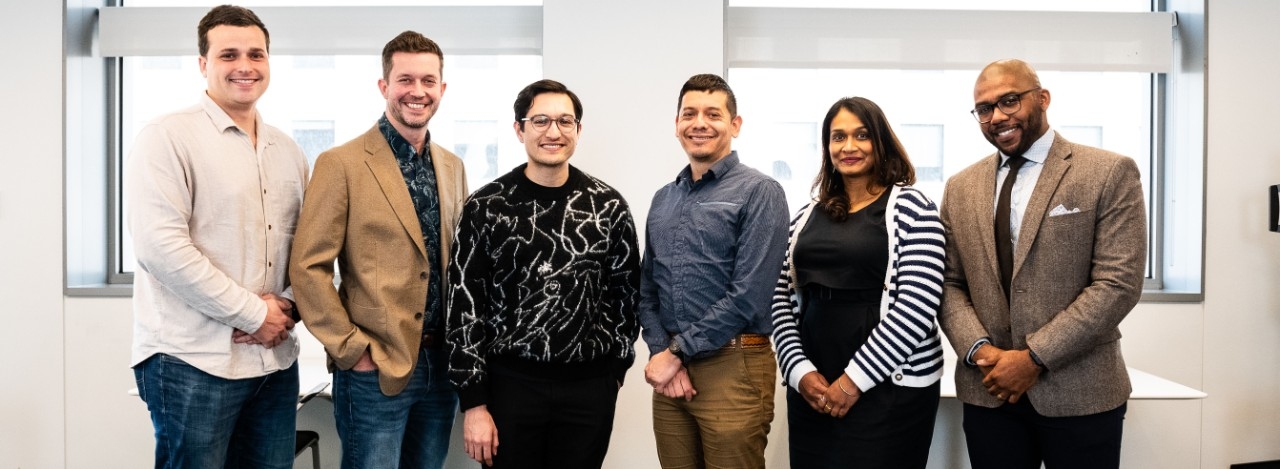Former Navy SEAL Wade Warden has traded in his tactical gear for a different kind of combat equipment: cybersecurity expertise. As he sits in NYU Law and NYU Tandon’s cutting-edge Master of Science in Cybersecurity Risk and Strategy program, he’s fighting a new kind of threat—one that can’t be seen through night vision goggles.
“The battlefield has shifted,” says Warden, who now works as an engineering program manager at Apple. “The most dangerous weapons aren’t always physical anymore. They’re lines of code that can expose Americans’ most personal information, potentially affecting everything from their ability to buy a home to their health insurance coverage.”
Warden isn’t alone in this transition from military to digital defense. He’s part of an remarkable cohort where nearly two-thirds—21 out of 33 students—are military veterans. This isn’t just a coincidence; it’s a testament to how modern warfare has evolved from boots on the ground to bytes in the cloud.
Warriors to Cyber Guardians
The program’s 2025 class reads like a special operations roster: former Army cyber operations specialists, Navy veterans, and military strategists who have witnessed firsthand how digital threats can be just as devastating as physical ones.
Tyler Hornbeck, a former Army cyber operations specialist who now engineers solutions at Tanium Inc., puts it into perspective: “The skills we learned in the military—quick thinking, strategic planning, and threat assessment—translate perfectly to cybersecurity. The enemy just looks different now.”
Beyond the Battlefield
What makes NYU’s program unique is its focus on the legal frontlines of cybersecurity. AnnMarie Saran, a Navy veteran turned Accenture management consultant, explains why this matters: “In the military, we had clear rules of engagement. In cybersecurity, those rules are still being written. That’s why understanding the legal framework is just as crucial as knowing the technical aspects.”
The program’s structure reflects this holistic approach:
- Three intensive five-day residential sessions
- 10-15 hours weekly of online learning between sessions
- A year-long capstone project focusing on real-world cybersecurity challenges
The Next Frontier
Swain Sulker, an Army veteran now working with the State Department in Sub-Saharan Africa, highlights a sobering reality: “Every day, we’re seeing personal data being treated like a commodity, while consumer rights struggle to catch up. The digital world needs the same level of protection we provided in physical warfare.”
Mark Blomquist, a lead technologist at Booz Allen Hamilton and Army veteran, goes even further, advocating for a complete overhaul of how we regulate digital security: “We need a new regulatory agency entirely dedicated to cybersecurity. The threats we’re facing are too sophisticated for our current framework.”
A Strategic Investment
NYU Law has doubled down on attracting veterans through the Yellow Ribbon scholarship program, offering unlimited matching for eligible participants. It’s a strategic move that Professor Randal Milch, the program’s faculty director, believes pays dividends: “Veterans bring something unique to cybersecurity discussions—experience making critical decisions under pressure. You can’t teach that in a traditional classroom.”
As cyber threats continue to evolve, this fusion of military experience and legal expertise might be exactly what’s needed to protect our digital future. After all, who better to guard against modern threats than those who’ve spent their careers protecting against traditional ones?


